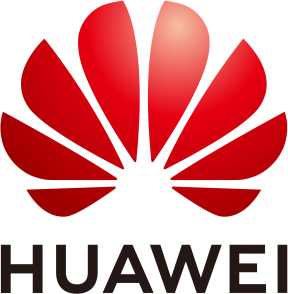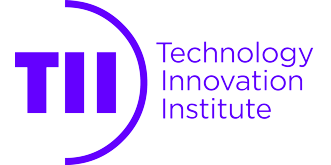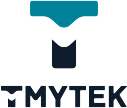Scope
Since the early generations, mobile and wireless communications systems have played a crucial role in establishing essential connectivity. They have facilitated easy access to information anytime and anywhere, leading to accelerated knowledge build-up and value-added actions across various sectors of society. The significance of wireless communication infrastructure has been further highlighted during the COVID-19 pandemic, as it has supported global stability and faster recovery by maintaining a stable technological environment and seamless societal connections despite quarantine regulations.
Recognizing the critical role and importance of mobile and wireless communications, advancements in the telecommunications ecosystem are captured through non-backward compatible features specified in a new generation of mobile and wireless communications systems. Transitioning from one generation to the next requires significant efforts, and the justification for a new generation must consider technical, societal, and economic factors. These factors are interconnected, meaning that advancements in any of these areas can accelerate the overall process. For example, the need to explore new business areas also entails supporting a diverse set of requirements.
In this context, the 5G standardization has progressed rapidly, with 3GPP Release 15 and Release 16 laying the foundations of the 5G system, and Release 17 providing enhancements and optimizations to support additional features and use cases as anticipated by Release 18. The upcoming Release 19 is under preparation to provide a guidance on what future the 6G system needs to be capable of. At the same time, the 5G Public Private-Partnership (5G PPP) in Europe, under the European Horizon 2020 program for Research and Innovation, has carried out more than 90 projects since 2015 to date. The European research community has started the Smart Networks and Services program as a Joint Undertaking (SNS JU) between industry and the public side under Horizon Europe, which focuses on 5G-Advanced and 6G.
To address the architectural evolution towards 6G, the 5G PPP Architecture Working Group (WG) has issued several white papers and an open-access book, with the latest one specifically focusing on this workshop's topics. The workshop aims to discuss novel key architectural innovations required for future 6G mobile telecommunications networks. It also provides a platform for projects working on long-term innovations and formulating research items under the 6G theme to share their visions, requirements, and architectural considerations for future mobile systems.
The thematic topics of the workshop will revolve around technology enablers and design recommendations, facilitating the transition from 5G and beyond towards a fully-fledged 6G architecture. These topics will encompass areas such as network infrastructure, spectrum utilization, connectivity, scalability, sustainability, and security, joint/integrated communication and sensing, among others. The workshop will source from the very vibrant 5G PPP and SNS JU research community that is already working on the topic, providing reference architectural solutions.
In summary, the rapid progress in mobile telecommunications has demonstrated their crucial role in establishing connectivity and fostering knowledge sharing. The ongoing efforts in 5G standardization, the 5G PPP and SNS JU projects, and the upcoming focus on 5G-Advanced and 6G research indicate the industry's dedication to advancing mobile telecommunications systems. The workshop aims to explore architectural innovations and provide a collaborative platform to shape the future of mobile telecommunications systems.
Call for Papers
Mobile and wireless communications systems have been fundamental to foster global connectivity and knowledge dissemination. Their significance has been especially highlighted during events such as the COVID-19 pandemic, emphasizing their role in maintaining stable societal connections despite challenging circumstances. Acknowledging their pivotal role, the telecommunications industry continues to push the boundaries with the introduction of new features and innovations into the next generation of mobile and wireless network architectures. Notably, the transition from 5G to the anticipated 6G architecture is underway, with the 5G PPP and SNS JU projects leading forefront research initiatives under the European Horizon programs. Through the 6GArch workshop, we will gather the latest research efforts in shaping the future of mobile telecommunications networks. Focused on exploring key architectural innovations, the workshop provides a collaborative platform for industry experts to share their insights and visions on topics including network infrastructure, connectivity, scalability, sustainability, and security. By fostering discussion and collaboration, this workshop aims to pave the way for a seamless transition from 5G to 6G, ensuring that future communication systems are equipped to meet the evolving demands of society.
Both theoretical & applied contributions are solicited, covering, but not necessarily limited to:
• Cognitive, automated, and specialized architectures including Architectural Simplification.
• Network Monetization.
• APIs and Exposure Framework.
• 5G to 6G Migration.
• Network Digital Twins.
• New spectrum technologies, e.g., midband, THz, and beyond frequencies and related channel models.
• Spectrum efficiency and spectrum re-utilization.
• Reconfigurable Intelligent Surfaces (RIS aka IRS).
• Joint-/Integrated Communication and Sensing (JCAS, ISAC).
• Inherent AI-driven network governance and management.
• Evolution of multiaccess communications (ATSSS) towards 6G.
• Architectural enablers for cloud transformation in 6G.
• AI/ML empowered RAN Intelligent optimization including native AI-based air interface design.
• Dynamic dependability and high resilience.
• Time-sensitive wireless/mobile networks.
• High-resolution localization.
• E2E Network Slicing and Deep Slicing to support diverse verticals.
• Open Testbeds and facilities to assess new technology enablers.
• Non-terrestrial and 3D networking.
• 6G architectural enablers and key metrics for an energy efficient and sustainable 6G system.
• Industry landscape and Standardization efforts for intelligent and cloud-based RAN.
Important Dates
Paper submission deadline: 14 January 2024
Paper Acceptance Notification: 26 January 2024
Final Paper Submission Deadline: 2 February 2024
Submission Instructions
The page length limit for all initial submissions for review is SIX (6) printed pages (10-point font) and must be written in English. Initial submissions longer than SIX (6) pages will be rejected without review.
You can check out IEEE templates here.
http://www.ieee.org/conferences_events/conferences/publishing/templates.html
EDAS submission link: https://edas.info/N31865
Supporting Projects








